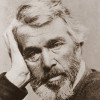“ For in all things it is well to exalt the dignity of Man, by freeing him as far as possible from the tyranny of non-human Power. When we have realised that Power is largely bad, that man, with his knowledge of good and evil, is but a helpless atom in a world which has no such [50] knowledge, the choice is again presented to us: Shall we worship Force, or shall we worship Goodness? ”
Bertrand Russell, Mysticism and Logic and Other Essays (1910). copy citation
| Author | Bertrand Russell |
|---|---|
| Source | Mysticism and Logic and Other Essays |
| Topic | tyranny goodness |
| Date | 1910 |
| Language | English |
| Reference | |
| Note | |
| Weblink | http://www.gutenberg.org/files/25447/25447-h/25447-h.htm |
Context
“Thus Man creates God, all-powerful and all-good, the mystic unity of what is and what should be.
But the world of fact, after all, is not good; and, in submitting our judgment to it, there is an element of slavishness from which our thoughts must be purged. For in all things it is well to exalt the dignity of Man, by freeing him as far as possible from the tyranny of non-human Power. When we have realised that Power is largely bad, that man, with his knowledge of good and evil, is but a helpless atom in a world which has no such [50] knowledge, the choice is again presented to us: Shall we worship Force, or shall we worship Goodness? Shall our God exist and be evil, or shall he be recognised as the creation of our own conscience?
The answer to this question is very momentous, and affects profoundly our whole morality. The worship of Force, to which Carlyle and Nietzsche and the creed of Militarism have accustomed us, is the result of failure to maintain our own ideals against a hostile universe:”
source



